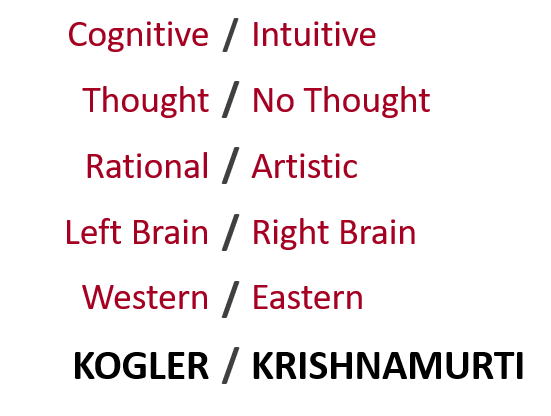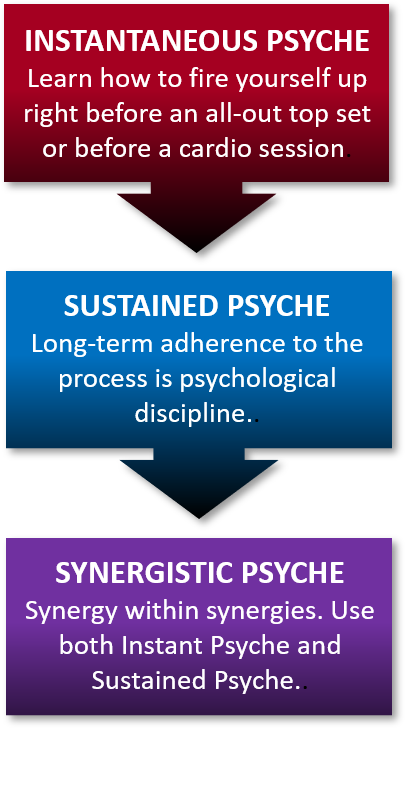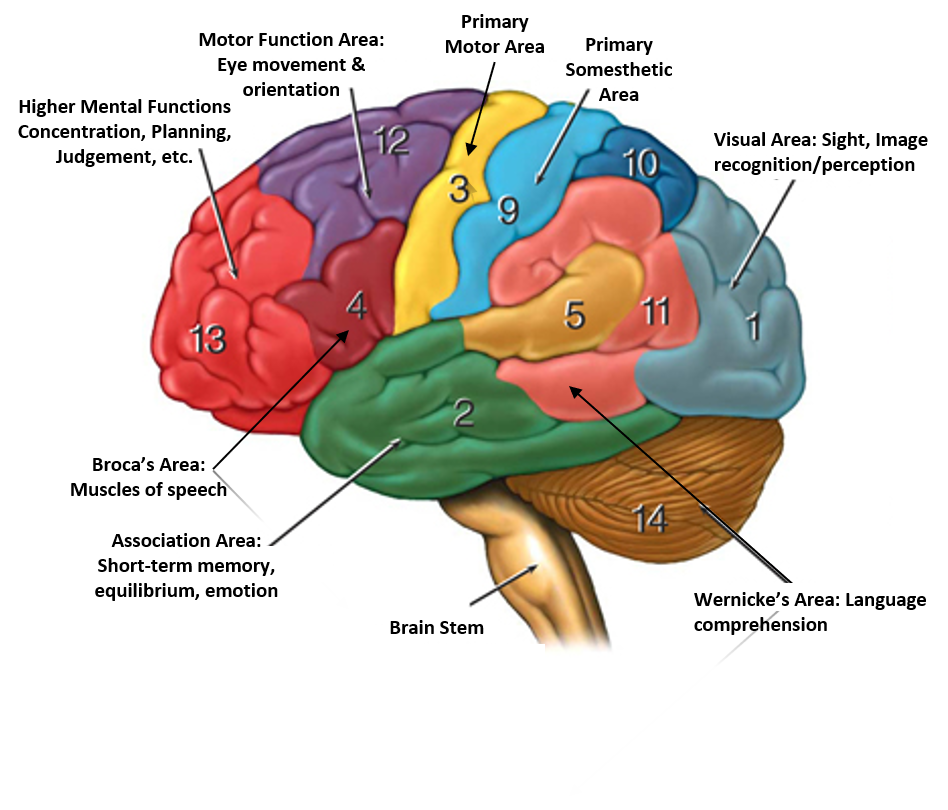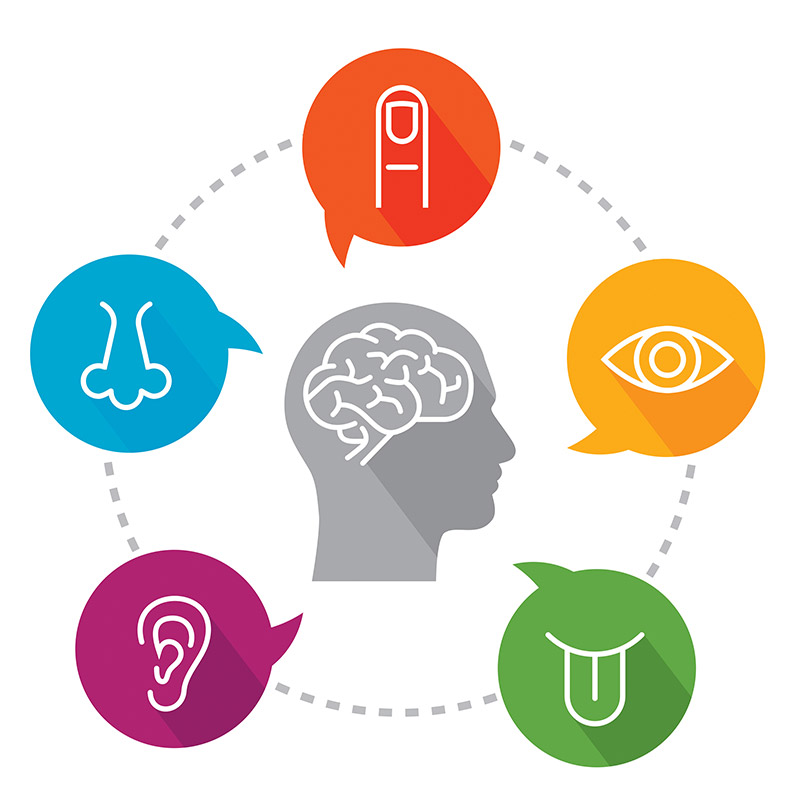Two psychological geniuses have crossed my path during my life journey: Jiddu Krishnamurti and Aladar Kogler. Each man stakes out one extreme of the Brain Train conundrum. Iron Mentor Bill Pearl was once asked what is the single most difficult muscle to develop? Answer: The Brain

People seeking physical transformation think the process is strictly about the training and nutrition. While it is true that proper training and nutrition are the tools we use for eliciting gains, unless the individual is motivated to wield these tools consistently and persistently, the tools are worthless. Motivation, consistency and persistence are critical mental attributes; each is needed in ample amounts if we are to be successful in our physical renovation efforts.
The important first battle in the war to transform is motivating oneself to begin the process. Training and nutrition are critical and must be properly instituted and implemented. Simultaneously a monumental battle is fought on a parallel playing field over force of habit. Ingrained bad habits must be modified or the effort to morph the body is doomed to failure. If the trainee is successful in their efforts to mentally recalibrate, by maneuvering the mind: willpower can be used initially to gain a toehold but willpower only takes you so far.
Experience teaches us that for those seeking to change existing detrimental habits into beneficial new habits, the first fourteen days are critical. The first two weeks usually determine success or failure. The phantom precursor needed to ignite physical progress is mental recalibration.
Willpower is the ability to force yourself into doing something that you don't want to do. Willpower is not the key to triggering a true transformation. Willpower is initially used to jump start the process. The transformative process must eventually be powered by enthusiasm if it is to succeed.
Transforming Willpower
Willpower is the ability to force yourself into doing something that you don't want to do. Willpower is not the key to triggering a true transformation. Willpower is initially used to jump start the process. The transformative process must eventually be powered by enthusiasm if it is to succeed.

There are three transformative tools: weight training, cardiovascular training and nutrition. Initially the Purposefully Primitive template may seem complicated, confusing and cumbersome. You do what you are supposed to do and settle in. At first we use willpower to power the process. After a few days things become clearer. The individual feels better. This is critical both physiologically and psychologically. By performing cardio, lifting weights and cleaning up the diet, very real biological changes occur within a matter of days. The trainee develops more energy and vitality. If the process is executed as it should be, at the end of fourteen days, tangible biologic and physical changes are visibly apparent. Nothing motivates a person more than losing body fat, adding muscle and feeling flat better; more energy, more endurance, more vibrancy. The individual thinks, wow! If I can look, act and feel this much better in just fourteen days - imagine my improvement after fourteen weeks! At this juncture enthusiasm takes over from willpower in powering the process.
When enthusiasm enters the picture, enthusiasm generated by irrefutable physical change, discipline becomes effortless. This is a predictable and expected phenomenon that occurs every single time an individual commits totally to the Purposefully Primitive process. We use willpower for a few days or weeks until tangible change becomes apparent. This triggers enthusiasm. Transformation of the human body originates in the mind of the trainee. When real results appear, the trainee comes to enjoy, look forward to, and crave the intense training and regimented eating. Once the trainee develops a love for the process, a real corner is turned and the person never again looks at fitness, training and diet in the same way.
The battle to recalibrate the brain is a riddle wrapped in an enigma tucked neatly inside a paradox. What we seek is effortlessness. Entrenched habits die a quick death when the mind is presented with better options. Those who succeed are those who initially use willpower to commence the process, yet understand the finiteness of Willpower as a mental propellant. We use willpower in those critical first days and weeks to overcome force of habit, knowing that when willpower exhausts itself, another mental propellant comes online to carry the process forward; a mental propellant that is self-regenerating, the mental equivalent of solar power; enthusiasm.
Is it possible to make hard training and disciplined eating fun and enjoyable? Absolutely! How do we get to a place where we actually derive primordial joy from training and look forward to eating foods that help instead of foods that harm? We use our brain to set up effective training and eating regimens that actually work. We train with passion and eat with gusto and zeal. Intense training triggers the release of endorphins, a powerful hormonal cocktail that transforms intense physical training into a joyful experience. In a week or two very real, very tangible physical and psychological changes appear. Now the process gains real traction. Fourteen days can change the direction of a person's life.
Hard and intense weight training causes the release of endorphins into the bloodstream. This narcotic-like substance creates a sense of well-being that has to be experienced to be understood. The feeling is pleasantly addictive; a legal high and unlike other altered states this high is beneficial, not detrimental, desirous not toxic.
Hard and intense cardio training creates this same physiological phenomenon. The endorphin rush associated with intense aerobic activity is called "runner's high." The runner's high can be acquired using any cardio mode, even walking. Intensity is the trigger.
The use of training logs creates a sense of momentum which is another source of real enthusiasm. Weight training and cardiovascular training both lend themselves to numeric report cards. Those new to the process are able to see very real, substantive, mathematical, tangible progress on a consistent basis. Beginners can make uninterrupted progress in every single training session for three straight months. It is easy for a beginner to create skyrocketing progress in lifting and cardio because they are untrained and out-of-shape.
The feeling of gaining real traction generates something the untrained and out-of-shape person has never experienced: a genuine enthusiasm for physical training. The fact that they are understanding the process, the fact that they are seeing real progress, progress in their poundage handling ability, progress in their cardio efforts, progress in how they feel and act, progress in terms of their weekly report cards ... it all adds up and creates an enthusiastic feel. "Finally! I am onto a system and a method that makes sense, a system that is delivering what is promised;a system that I understand and feel good about doing. I look forward to intense workouts!"
The most difficult mind battle is overcoming nutritional habit-force. Food habits are ingrained from childhood and the battle to overcome taste addiction requires subtlety and tact. We all have certain foods that we like to eat and that are perfectly acceptable in our new Performance Eating regimen. Psychologically, we seek to identify those healthy and acceptable foods we like to eat and make them the backbone of our new relationship with food. We understand the futility in trying to suppress the chokehold that taste has on us. Instead of suppression and repression we utilize taste to our advantage. We recalibrate our relationship with food. Once we are able to develop a repertoire of foods that we like to eat and are beneficial; once we learn how to prepare these beneficial foods quickly and easily; once we discover how to infuse great taste into foods that are good for us; dieting ceases to become a battle. By using taste to our advantage food becomes our biggest ally instead of our main impediment.
Mental Mentors
Two men have helped me immensely in understanding how and why we think the way we do. These two men taught me how to change how I think. Each man has provided me an immediately applicable, usable mental template. Too often nowadays the psychological approach towards fitness is either touchy-feely New Age garbage or Brusque Brutes spouting Hitlerian fitness platitudes, invoking willpower and discipline. The first approach is couched in fuzzy, furry, friendly phrases and feel good bon mots about "getting in touch with ourselves." At the other ridiculous extreme are fitness Brown Shirts, morons that scream "No Pain No Gain!" and "You just don't want it bad enough!" We reject these psychological surface skimmers.

A passionate and recalibrated Mindset elevates the individual's performance during the workout session. When we learn to love the sweat and exhilaration of hard training, a dramatic corner can be turned. A recalibrated Mindset provides us with that infinite mental propellant: genuine enthusiasm.
So who are these two mental masters and what do they have to say that might be relevant to our particular quest? Krishnamurti is the master of the intuitive. He stresses that we need to access a wordless state of vibrant, electric alertness. This state of mind emerges out of profound mental silence. Aladar Kogler is the cognitive genius. He uses rational thinking and organized thought to create structures of extreme logic.
The Functions of the Human Brain

Recalibrating the Five "Sense Gates"

When you training with great intensity, you achieve a Samadhi-like state. Athletes wax poetic about accessing The Zone. This is a Western slant on a psychological phenomenon that has been understood in Japanese Budo for centuries. Truly intense physical activity causes the five "sense gates" to fall into perfect alignment. Hearing, seeing, sense of smell, tactile touch and taste are independent subcontractors. When the body is subjected to taxing physical effort, sensory input is unified and amplified. Taxing physical effort short circuits the "thinker." Cognitive function becomes laser-like and easily focused on the athletic task at hand. This is sport-induced meditative Samadhi.
Check out the links to learn more about creating a blank mind for better athletic psyche and overall well-being.
Learn more about our mental psyche philosophy check out our Mental Psyche Resource Page. Join the community sign up below to our newsletter and receive our FREE Planning and Periodization Guide.
Want the inside training scoop?
Join The Community
Our email content is full of value, void of hype, never pushy, and always free. As a BONUS you will receive our FREE planning & periodization template to help you with your training goals.




[…] Since strong focus of attention (on an object, idea, or activity) is the goal of meditation practice. The immediate benefits of meditation are increased focus and concentration for every aspect of our lives. The breath can be used like a light switch to turn on awareness/psyche and tune out negativity. See blog post "How to Focus the Mind." […]